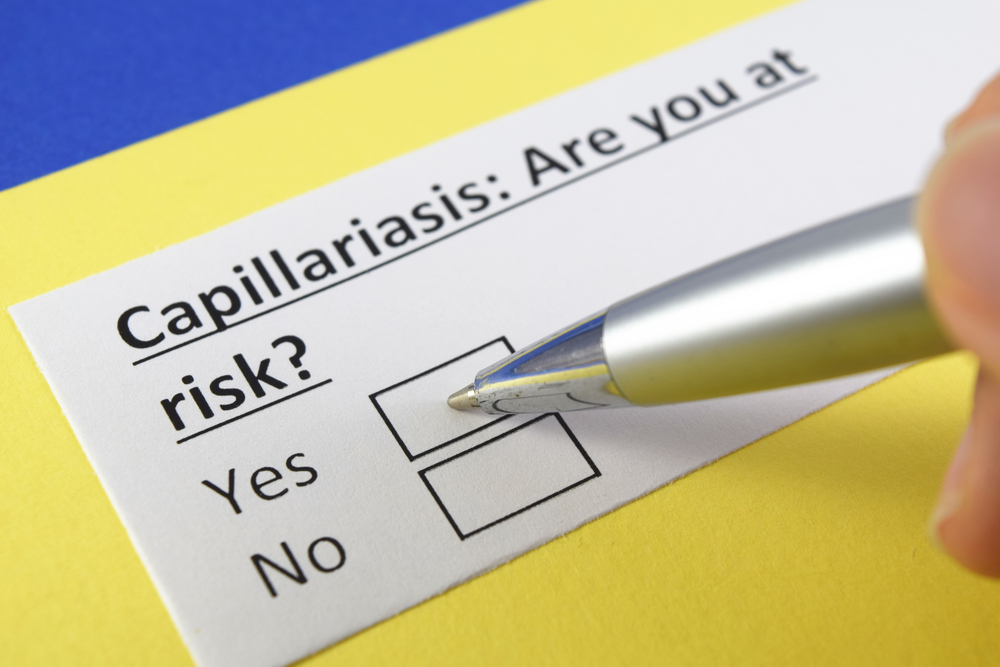TYPES
These are the two main types of diseases:
- Capillariasis of the intestines- This type is caused by capillaria philippinensis.
- Capillariasis of the liver, due to Capillaria hepatica, Capillariasis of the intestines. It is a sprue-like diarrheal disease caused by Capillaria philippinensis infection, a large number of population formed by internal autoinfection of the intestinal mucosa; distinguished by abdominal diarrhoea, discomfort, hypotension, oedema, cachexia, hypoproteinemia, heart failure, and hyporeflexia; severe infection is often indicated as a fulminating condition that may be deadly.
Hepatic capillariasis is a severe parasitic zoonosis as a result of Capillaria hepatica (C. hepatica), a tissue-dwelling nematode. Humans are an incidental host; human infection is developed by the ingestion of infectious eggs infected with food or water.
After being expelled from the body in human stool, the life cycle of the genus Capillaria starts as eggs that become embryonated. The eggs are eaten by fish living in freshwater. Then, the larvae hatch from the eggs and enter the fish’s intestines. After, the larvae migrate to the tissues of the fish from there. If the fish is eaten raw or poorly cooked by a human, the human becomes the new host.
The mature roundworms live in the human host’s small intestine, and there is burrowing in the mucosa. The female roundworms place embryonated eggs there, to start the cycle again. Some of these eggs live as larvae in the small intestine and hatch, causing the human host to become auto-infected. This would usually contribute to what is known as hyperinfection, where a large number of adult roundworms populates the body.
SYMPTOMS
- Weight loss
- Decrease in desire for food
- Abdominal ache
- Constant diarrhoea for more than two weeks
- Upset stomach
- Inflammation of the body
- Deteriorating muscles
The parasites in humans destroy the cells of the intestinal wall. The harm included nutrient absorption and the preservation of the proper balance of electrolytes—the untreated C. The infection of philippinensis is sometimes critical. Mebendazole and albendazole are Anthelmintics that have been identified to eradicate the infestation in individuals more effectively than thiabendazole,
Within four days, eggs and pathogens disappear from the faeces and signs disappear within a week. Mebendazole 400 mg /day is administered in divided doses for 20 days in new cases and for 30 days for worsening of situations.


